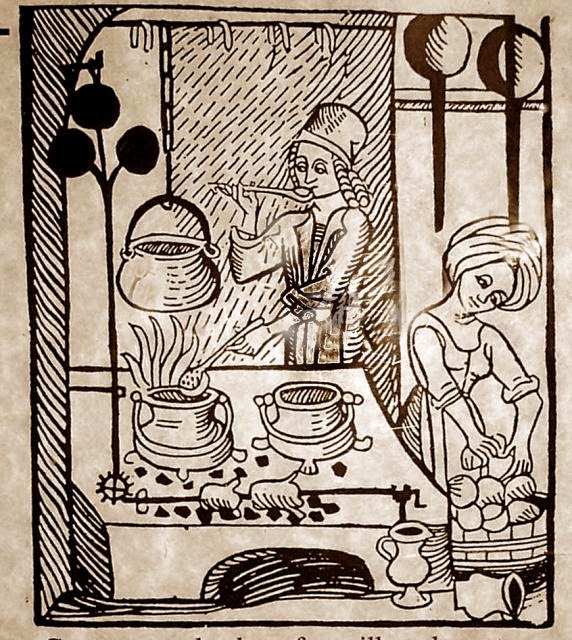When it came to food, the royal household had two kitchens: one for the king, and one for the rest of the household. Cinematic scenes of the king presiding over a large feast hall were a rare event in the Middle Ages. He usually ate in his private chambers with a few close family members or staff, joining the crowd for special occasions such as Holy Days. The store of spices was reserved for the king, and included caraway and cumin, ginger and sugar, almonds and rice and pepper.
Although the household in general may have had less in the way of flavoring, it had plenty in the way of food. Records for the kitchen supplies of 1291-2 survive and give an idea of how much was consumed. Beef, pork, and mutton were the primary meats, with chicken and duck and enormous numbers of eggs supplementing. The Christmas meal for 1291 included 1742 chickens, 22 pheasants, 17 dozen partridges, 16 dozen mallards, six dozen plover.
A six-month span in this year's budget saw the following items purchased for consumption:
- 10 quarters* of wheat
- 10 quarters of malt (to make beer)
- 1500 cattle
- 3000 sheep
- 1200 pigs
- 400 slabs of bacon
- 3000 quarters of oats (to feed horses)
*a quarter was one-fourth of a hundredweight; a hundredweight was equal to 112 pounds; so a quarter was 28 pounds.

No comments:
Post a Comment
Note: Only a member of this blog may post a comment.